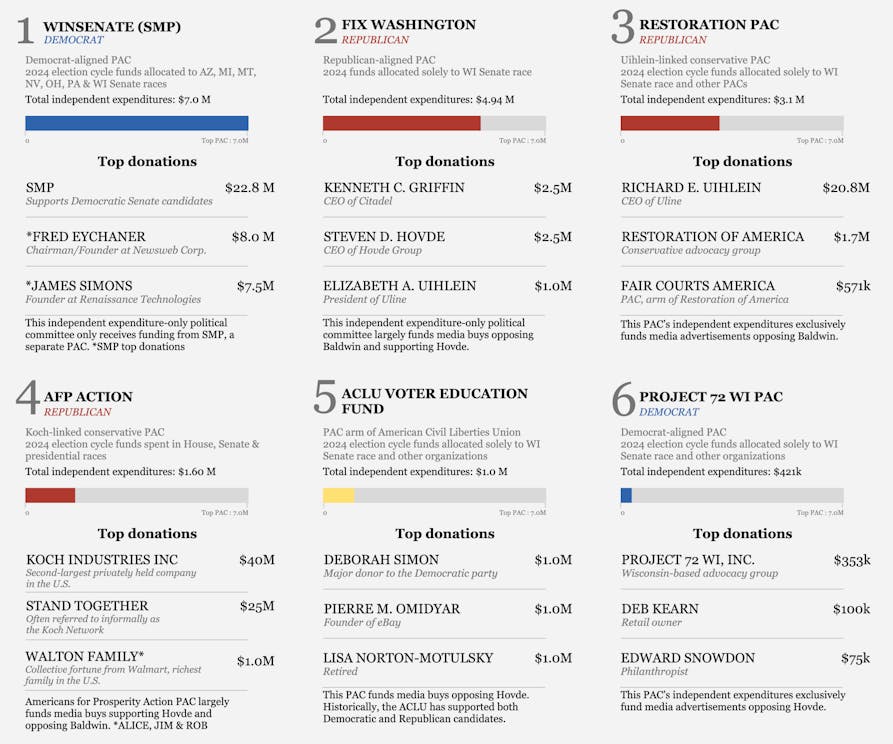With the Nov. 5 election less than two months away, Wisconsin’s U.S. Senate race remains tight.
Incumbent Democratic U.S. Sen. Tammy Baldwin and multimillionaire businessman Eric Hovde are neck-and-neck, remaining in a statistical tie, according to Marquette Law School’s poll of Wisconsin voters released in early September.
Successful political campaigns cost money. When races get tight, campaigns rush to raise and spend large sums to get the word out.
The Federal Election Commission (FEC) limits the amount individuals can contribute to a candidate's campaigns to $3,300 per election (a primary, general, runoff and special election are each considered separate elections). This often restricts large donors to a maximum of $6,600 per election cycle for individual candidates, so donors who wish to influence the election in a larger way can donate to a Political Action Committee (PAC).
This cycle, PACs have collectively pumped $18.7 million and counting into the Wisconsin Senate race, according to a Daily Cardinal analysis of Federal Election Commission data. The graphics below show the top PAC spenders, their party alignment and top donors.
Some PACs may receive unlimited contributions from individuals, corporations, labor unions and other PACs for the purpose of financing independent expenditures — spending for a communication that advocates the election or defeat of a candidate without coordination with any candidate, their campaign or political party.
From CEOs to shipping magnates, the mega-donors listed below leverage their wealth to influence elections according to their ideologies. Notable contributors include heirs of the Walmart fortune, Koch Industries, Hovde’s brother and both CEO and the president of Uline.
Note: The independent expenditures listed below are exclusively for the Wisconsin Senate race. Donations are made to the PAC nationally, although some only spend in Wisconsin.


Ty Javier is a senior staff writer and photographer at The Daily Cardinal. He specializes in data analysis and written in-depth on PACs, university and campaign finances, economics and transit. He is an Economics major. Follow him on X @TyRJavier.






